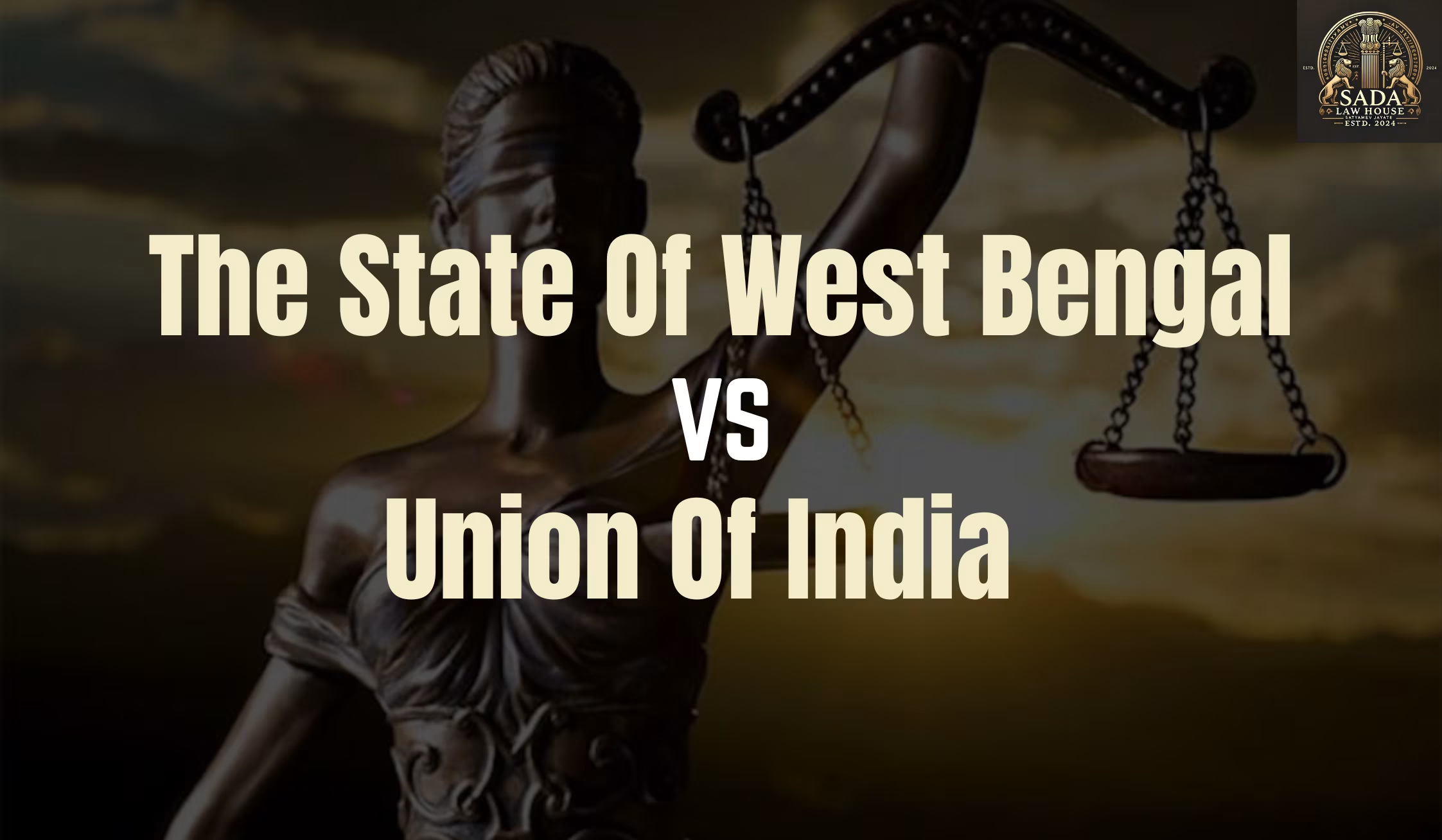State of West Bengal vs Union of India 2024: Supreme Court Judgment on CBI Jurisdiction and Consent Withdrawal under DSPE Act
- NITU KUMARI
- 27 May 2025

Explore the landmark 2024 Supreme Court judgment in State of West Bengal vs Union of India, addressing CBI jurisdiction post-consent withdrawal under Section 6 of the DSPE Act. A critical case on federalism and Article 131 of the Indian Constitution.
Introduction
On July 10, 2024, the Supreme Court of India delivered a significant judgment in the case of State of West Bengal vs Union of India, addressing the legality of CBI investigations following the withdrawal of consent by a state government. The case was filed under Article 131 of the Constitution, which grants the Supreme Court original jurisdiction over disputes between the Union and States.
This case centers around the Central Bureau of Investigation (CBI) and its powers under the Delhi Special Police Establishment Act, 1946 (DSPE Act), especially Section 6, which requires state consent for CBI investigations within state territory.
Facts of the Case
On November 16, 2018, the Government of West Bengal withdrew the general consent granted to the CBI under Section 6 of the DSPE Act.
Despite the withdrawal, the CBI continued to register FIRs and conduct investigations within the state.
West Bengal filed a civil suit under Original Suit No. 4 of 2021, seeking a declaration that such actions were unconstitutional.
The state requested a judicial restraint on the CBI from investigating within West Bengal without specific consent or court direction.
The Union of India argued that CBI’s authority stems from central powers and that withdrawal of consent does not override judicial or statutory permissions.
Key Legal Issues
Can the CBI operate within a state after withdrawal of consent under Section 6 of the DSPE Act?
Does this dispute fall under the original jurisdiction of the Supreme Court as per Article 131?
Is the suit maintainable in light of ongoing proceedings under Articles 136, 226, or 32?
Did the CBI’s post-withdrawal actions violate constitutional federalism?
Judgment Overview
Bench
The case was heard by Justice B.R. Gavai and Justice Sandeep Mehta.
Case Citation
2024 INSC 502
The Supreme Court held that the suit was maintainable under Article 131 and that disputes involving inter-governmental constitutional matters fall within the Court’s original jurisdiction.
Legal Reasoning
Ratio Decidendi (Core Legal Principle)
Withdrawal of general consent under Section 6 of the DSPE Act does not invalidate ongoing investigations initiated before the withdrawal.
For new FIRs or investigations, the CBI must obtain specific consent or a court order.
Federal structure demands mutual respect between Union and State authorities.
Obiter Dicta (Additional Observations)
The Court emphasized the importance of federal cooperation.
Clear guidelines and jurisdictional protocols are essential to prevent conflicts between the Centre and States.
Court Directions
The CBI must adhere to jurisdictional limits post withdrawal of consent.
The Union and States must develop clear procedures to manage CBI investigations fairly and transparently.
Federalism requires the autonomy of both Central and State governments to be respected.
Conclusion
The Supreme Court judgment in State of West Bengal vs Union of India (2024) marks a critical moment in the debate over CBI jurisdiction and federalism in India. The decision reinforces that state consent is essential for new investigations, upholding the spirit of cooperative federalism and legal clarity.
The ruling sets a precedent for similar disputes between State and Central agencies, emphasizing the need for balance and constitutional integrity in India’s federal framework.
Case Laws






